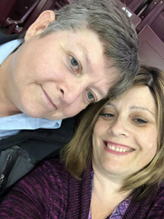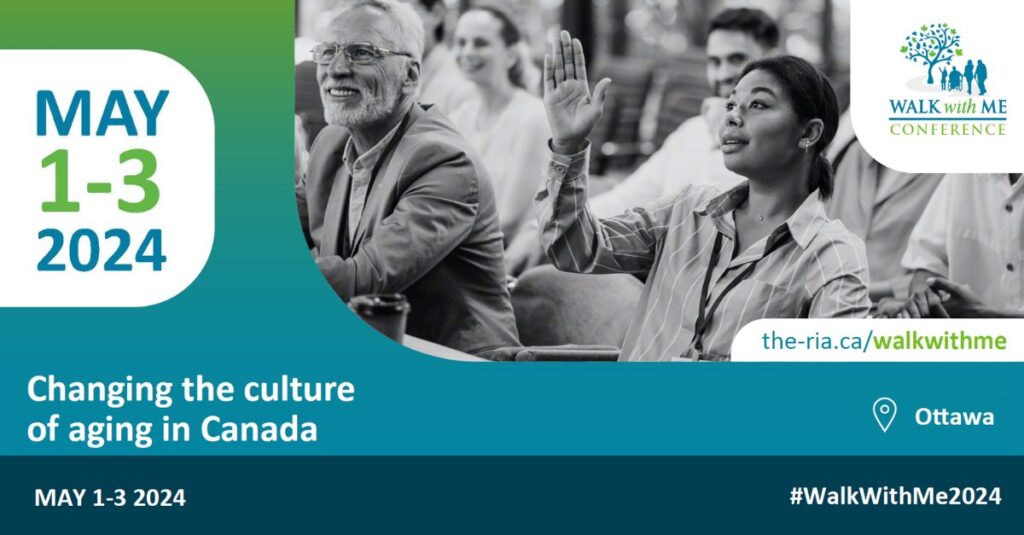Community Spotlight
Each month, we profile a special member of our community: a student, alumni, faculty member, or partner. Check out this month’s inspiring story below!
Walk With Me Conference and Trailblazer Award Recipients – Contributing to Changing the Culture of Aging
“Seniors living and care is being changed by people with lived experience, teams of experts and individuals and care partners across Canada. As the aging population grows we need new ways of thinking and new approaches. These Trailblazers are creating new paths to approach aging and seniors care.” – Michelle Stillman, Walk with Me Conference Co-Chair
“Everyday across Canada experts, residents and families are creating innovative new ways to approach senior living. We are thrilled to celebrate and champion these efforts through the Trailblazer Awards.” – Sherry Schaefer, Walk with Me Conference Co-Chair
Walk With Me Conference
Walk With Me is a national conference focused on changing the culture of aging in Canada. It welcomes older adults and residents, care partners, educators, policymakers, students and researchers from across the country to engage, learn and connect on how to enhance the journey of aging across the continuum of care and community living.
Walk With Me is hosted by the Schlegel-UW Research Institute for Aging, a non-profit dedicated to enhancing the quality of life of older adults through research, education and practice, and CapitalCare, one of the largest public continuing care organizations dedicated to providing person-centred care. As part of the conference, trailblazers from across Canada are recognized for their impact on culture change in aging.
Trailblazers for Culture Change Awards
The Trailblazers for Culture Change Awards recognizes changemakers across Canada that are contributing to changing the culture of aging through initiatives, programs, or day-to-day practice. This includes any individual, team, or organization involved in senior care or support across the continuum of care, such as long-term care homes, retirement homes, day programs, community centres, and other programs encouraging engagement in the community.
Trailblazer initiatives reflect the Walk With Me culture change values, address concerns relating to aging and older adults, actively engage older adults in their initiatives, lead inspiring and forward-thinking ideas and practices, and work to make a positive impact on the aging community. To read about the Top Trailblazers of 2024 visit this link.
This Spotlight focuses on two Trailblazer Award recipients for 2024
Explore the achievements of these 2024 Trailblazer Award recipients. Scroll down to learn about their contributions to healthcare innovation, gain insights through our focused Q&A sessions and discover why they are CHA Learning’s Community Spotlight for April 2024.

Kim Schmidt, CEO
Sherbrooke Community Centre, Saskatoon
Initiative: iGen Program
“Shift to a mindset of abundance! This initiative is a reality because of the forward-thinking ideas and incredible efforts of many amazing people at Sherbrooke Community Centre. It is a great example of what can happen when a constructive culture is intentionally created and nurtured! Be open to possibilities and have confidence that the right people and resources will materialize at the right time!” – Kim Schmidt
—
The Grade 6 Intergenerational Program (iGen) is a unique partnership between the Sherbrooke Community Centre Long-Term Care home and the Saskatoon Public School Division grade 6 class. This is the first program of its kind in Canada and has been running for 10 years. Students spend the school year learning in various parts of the LTC home and create relationships with the residents that nourish the mind, body, and spirit of all. This program challenges stereotypes, builds empathy and understanding, and enhances personal growth for both students and residents.
Learn more from Kim
As a Trailblazer recipient, how do you feel your work and this project has impacted the community or sector you serve?
This work represents the incredible efforts of many amazing people at Sherbrooke Community Centre. Creating an intergenerational classroom was the brainchild of our former Communications Leader, Patricia Roe, who had a dream that one day we would have a “one room school” at Sherbrooke. Keri Albert, Lead Teacher, shared that dream and with the support and guidance of Sherbrooke staff and an incredible advisory team of leaders and educators, iGen was created and launched in 2014. Over 250 students have attended iGen since its inception.
Meaningful connections and friendships that span generations have contributed to increased wellbeing for the elders, students and staff involved in iGen and our entire community! Elders involved with the iGen class find purpose, meaning and a reason to get out of bed in the morning. Elders have the opportunity to mentor students, while students gain confidence and learn life lessons such as the importance of respect, reciprocity and generosity of spirit. Our teacher Keri calls iGen “the school of real life”! The relationships between the students and Elders make life richer through the joyful, unpredictable moments that happen when you bring generations together.
How do you see your field evolving in the next few years, and what role do you hope to play in that evolution?
I see long-term care evolving to be more person-directed, moving away from the institutional, medical model that it was based on. Human beings thrive in a healthy diverse community, often referred to as a Human Habitat in the Eden Alternative philosophy. I believe that my role as CEO is to support our staff to continue to create the healthiest, most vibrant community possible. Dr. Thomas, founder of the Eden Alternative, says that we are “world makers” in long-term care. So we need to ask ourselves – is the world we have created interesting, meaningful, and diverse enough? The most important things I can do as a leader are to provide clarity about what we are trying to achieve, and then ensure the conditions of empowerment are in place for staff. Our staff are brilliant and creative, and when we set them free to do the work that they aspire to do, magic happens.
How do you stay motivated and continue to innovate in your field?
In my thirtieth year at Sherbrooke, I continue to be motivated and energized by the Elders who live here and the staff who work here. Their resilience, desire to grow, and find meaning in community inspires me every day. At Sherbrooke, we have a saying that we “lay the path as we walk it”. I think this is so important in terms of creating an environment where innovation thrives. Listening to ideas with the intent of “how can we make this happen?’, without knowing all the nuts and bolts of the implementation, but with a real desire to improve and make life better for the people who live, work, learn, volunteer and visit here is crucial.
What advice would you give to either an individual or team aspiring to undertake a similar initiative?
Be open to ideas, listen carefully, ask questions and be curious. You may not have all of the answers at first, but be open to possibility and have confidence that the right people and resources will materialize at the right time. Shift to a mindset of abundance!
 Mary Beth Wighton and Dawn Baxter
Mary Beth Wighton and Dawn Baxter
Lived Experience Co-Facilitators
“Embrace the essence of carpe diem, even amidst the challenges of dementia, living each moment with dignity.” – Mary Beth Wighton
—
Mary Beth, a person living with dementia, and her life partner, Dawn Baxter, have transformed their personal journey of caring for and living with dementia into a powerful advocacy mission. They openly share their experiences in speaking engagements, dementia inclusive roundtables and advisory boards, research, dementia related education and service development projects, and the Behavioural Supports Ontario team exemplifies their dedication to creating impactful change within the healthcare landscape. By openly sharing their challenges, triumphs, and insights in various forums, they continue to shape a more compassionate and informed society that embraces and supports individuals living with dementia.
Learn more from Mary Beth and Dawn
As a Trailblazer recipient, how do you feel your work and this project has impacted the community or sector you serve?
Over the years, we have deeply immersed ourselves in the dementia space, collaborating with a diverse range of individuals, organizations, researchers, and policy makers and sharing our own perspectives. We are bringing true experience to the table – being open about our journey and welcoming people into the most personal aspects of our lives.
Our lived experiences serve as a powerful catalyst for positive transformation. By imparting firsthand knowledge, we have inspired our communities to adopt more sensitive, culturally attuned, and diverse approaches towards supporting individuals living with dementia and their care partners.
Currently, we proudly serve as Lived Experience Facilitators with Behavioural Supports Ontario (BSO). In this capacity, we actively challenge traditional perceptions of dementia, striving to dismantle stereotypes and foster a more inclusive understanding of the condition. Our role allows us to provide invaluable input that directly shapes the development of services and supports for individuals and families affected by dementia. By including people with lived experience, we get to drive meaningful change within the system.
How do you see your field evolving in the next few years, and what role do you hope to play in that evolution?
Currently there remains a focus on finding a cure for various causes of dementia. Instead, we believe there needs to be a greater focus on helping people with dementia and their care partners to live well and as fully as possible throughout the journey. We also believe a biomedical understanding of dementia continues to perpetuate misunderstanding and stigma and a new way of understanding of dementia is needed – one that moves us AWAY FROM deficit, decline, BPSD (behavioural and psychological symptoms of dementia), and stages, and TOWARDS an understanding that is focused on understanding the lived experience for each person touched by dementia, on strengths and well-being. Each one of us diagnosed with dementia will experience our condition differently and that needs to be recognized. We need to prioritize the concept of personhood, emphasizing the inherent dignity, autonomy, and uniqueness of each individual living with dementia.
There’s a growing expectation for lived experience to directly inform both practice and research endeavors. This integration ensures that interventions and studies are grounded in the realities faced by individuals living with dementia and their caregivers. People with lived experience provide vital information that can enhance both practice and research within the field. Our firsthand insights provide invaluable perspectives that shape interventions, policies, and support services.
Stronger awareness of human rights in dementia care is crucial, with dementia being viewed as a disability rather than solely a mental health condition. Advocacy efforts should focus on ensuring that individuals living with dementia receive equitable treatment and support.
Lastly, increased dialogue about end-of-life care is necessary, including discussions on dignified dying. Initiating conversations about what constitutes dignified dying and ensuring that preferences are respected are essential aspects of comprehensive dementia care and support.
How do you stay motivated and continue to innovate in your field?
We find motivation in reading about the experiences of others living with dementia and witnessing how they navigate challenges, create change, and overcome obstacles. Seeing the impact that individuals with lived experience can have, inspires us to continue pushing boundaries and advocating for meaningful improvements in dementia care.
Our motivation is also sustained through the partnerships we have with individuals and organizations who share our vision for a better understanding of dementia and a focus on promoting living well. Working together with like-minded partners allows us to pool our strengths, resources, and expertise towards common goals, fostering innovation and progress in our field.
Our mutual commitment to each other’s well-being and shared goals serves as a powerful source of motivation. For example, Dawn’s determination to ensure I (Mary Beth) live well and her commitment to helping other care partners in similar situations, is what motivates her to share her experiences and insights. Similarly, I (Mary Beth) am motivated by others who are living with a diagnosis, but also the support and encouragement of allies who champion human rights and share a desire to make a positive difference in the lives of those affected by dementia. This mutual support system keeps us focused, energized, and committed to our mission, propelling us forward in our efforts to drive innovation and positive change in the field of dementia care.
What advice would you give to either an individual or team aspiring to undertake a similar initiative?
For those wishing to make a difference in the lives of people living with dementia and their care partners, this is the advice we would offer:
Follow your hearts and challenge stigma – It is essential to follow your intuition and passion, even if it means challenging your own preconceptions and beliefs. By being open to examining and confronting stigmas surrounding dementia, you can clarify your mission and find a path forward that aligns with your values. Embracing this journey with an open mind can lead to exciting opportunities for growth and innovation.
Recognize and include lived experience roles – Over the years we have worked with several wonderful people and organizations that formally acknowledged the invaluable contributions of people living with dementia and their care partners. Behavioural Supports Ontario (BSO) serves as one exemplary example. We also work closely with a senior living leader, Jessica Luh Kim, who actively involves us as a true partner in her efforts to revolutionize dementia services and supports. Additionally, we have been invited and actively engaged in various government round tables and research initiatives that are focused on enhancing the lives of people living with dementia and care partners.
When individuals living with dementia and their care partners are afforded formal roles that are not only valued but also compensated for, it goes beyond mere recognition; it signifies a profound acknowledgment of their expertise and insights. This inclusive approach not only amplifies our voices but also fosters meaningful participation in decision-making processes. Aspiring initiatives should advocate for similar recognition and inclusion, advocating for spaces where those directly impacted by dementia can contribute, be heard, and ultimately empower change. By working together, that’s when real change can happen and thrive.
Connect with the Schlegel-UW Research Institute for Aging and the Walk With Me Conference
Follow the links below to connect with the Schlegel-UW Research Institute for Aging and the Walk With Me Conference through their websites and social media. Additionally, you can find information about other Trailblazer Award winners, including Carole Estabrooks, Scientific Director and Co-Founder at Translating Research in Elder Care (TREC); Ruth Watkiss, Music Therapist at the Alzheimer Society of Peel; and Bryce McBain, General Manager at Village of Riverside Glen.
Conference Website: Walk With Me 2024 | Research Institute for Aging (the-ria.ca)
Trailblazer Awards: Trailblazers for Culture Change Awards | Research Institute for Aging (the-ria.ca)
LinkedIn: Schlegel-UW Research Institute for Aging (RIA): Overview | LinkedIn
Facebook: facebook.com/SchlegelUWRIA/
Twitter: Schlegel-UW Research Institute for Aging (@SchlegelUW_RIA) / X (twitter.com)
Hashtags: #WalkWithMe2024 #WWM2024





 The Trailblazers for Culture Change Awards recognizes changemakers across Canada that are contributing to changing the culture of aging through initiatives, programs, or day-to-day practice.
The Trailblazers for Culture Change Awards recognizes changemakers across Canada that are contributing to changing the culture of aging through initiatives, programs, or day-to-day practice. 